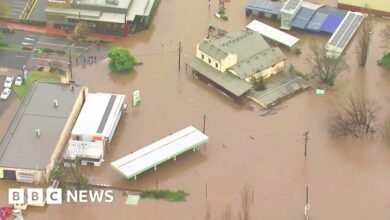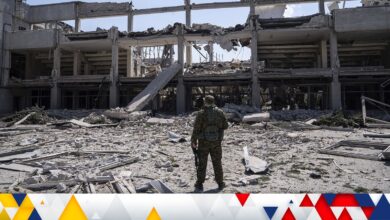Countries urge citizens to leave Lebanon as fears of Middle East war grow
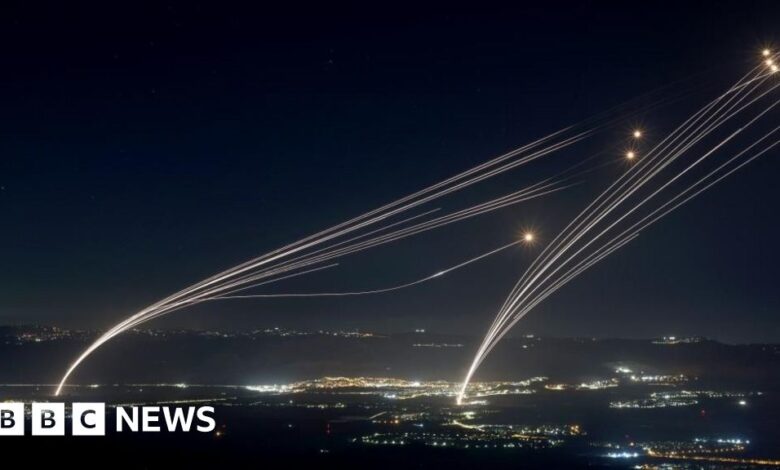
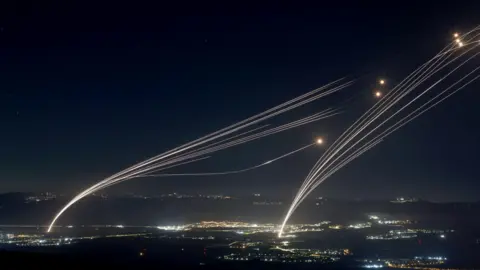 United States Environmental Protection Agency
United States Environmental Protection AgencyThe United States has urged its citizens to leave Lebanon using “any available ticket”, amid fears of a wider conflict in the Middle East.
More and more countries are issuing similar warnings, including the UK.
Iran has vowed “severe” retaliation against Israel, which it blames for the death of Hamas leader Ismail Haniyeh in Tehran on Wednesday. Israel has not commented. His assassination came hours after Israel killed senior Hezbollah commander Fuad Shukr in Beirut.
Western officials fear that Hezbollah, an Iran-backed militia and political movement based in Lebanon, could play a key role in any such retaliation, which could trigger a severe response from Israel.
Diplomatic efforts by the United States and other Western countries continue to try to de-escalate tensions across the region.
But in response to such concerns, Britain, Sweden, France, Canada and Jordan have urged their citizens to leave Lebanon, as more flights are cancelled or delayed at the country’s only commercial airport in Beirut.
Fears of an escalation of hostilities that could engulf Lebanon are at their highest since Hezbollah began attacks on Israel, a day after Hamas attacks on October 7, in support of Palestinians in Gaza.
Most of the violence has been confined to the border area, with both sides saying they do not want a wider conflict. However, Hezbollah has vowed to respond to Shukr’s assassination, which took place in Dahiya, its stronghold on the southern outskirts of Beirut.
On Sunday, Hezbollah launched dozens of rockets at the town of Beit Hillel in northern Israel at around 00:25 local time (21:25 GMT Saturday).
Footage posted on social media showed Israel’s Iron Dome air defense system intercepting the missiles. There were no reports of casualties.
The Israeli air force responded by attacking targets in southern Lebanon.
In a separate incident on Sunday morning, two people were killed in a knife attack in the Israeli city of Holon. The attacker was later “neutralized”, police said.
In a statement on Saturday, the US embassy in Beirut said those choosing to stay in Lebanon should “prepare contingency plans” and be prepared to “shelter in place for an extended period of time.”
While flights are canceled and delayed and many are sold out, the airline said commercial transportation out of Lebanon remains available.
The Pentagon said it was deploying additional warships and fighter jets to the region to help protect Israel from possible attacks by Iran and its proxies, a strategy similar to the one used in April, when Iran launched more than 300 missiles and drones at Israel in retaliation for an attack on its diplomatic compound in Syria. It blamed Israel for the attack.
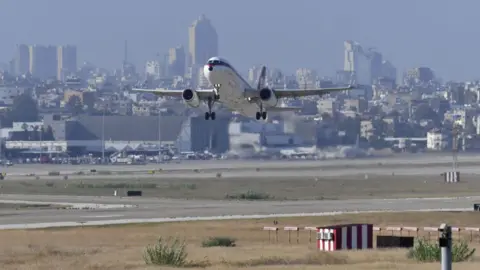 beautiful pictures
beautiful picturesMany fear Iran’s retaliation this time could come in a similar fashion.
Britain said it would send additional military personnel, consular staff and border guards to assist with the evacuation, but urged British citizens to leave Lebanon while commercial flights were still operating.
Two British military ships are now in the area and the Royal Air Force has put transport helicopters on standby.
British Foreign Secretary David Lammy said the situation in the region “could deteriorate rapidly”.
Meanwhile, in Gaza, at least 17 people in a school housing displaced people were killed in an Israeli air strike, the Hamas-run government said on Saturday.
The Israeli military said the Hamama school in the Sheikh Radwan neighborhood of Gaza City was being used as a command center for militants. Hamas has denied that the school operates from civilian premises.
Israeli ministers were sent home this weekend with satellite phones as a precaution in case the country’s communications infrastructure is attacked.
In a phone call with EU foreign policy chief Josep Borrell on Friday, Iran’s acting foreign minister Ali Baqeri Kani said Iran “will certainly use its legitimate and inherent right” to “punish” Israel.
On Friday, an announcer on Iranian state television warned that “the world will witness extraordinary scenes.”
Israeli Prime Minister Benjamin Netanyahu has warned Israelis that “challenging days are ahead… We have heard threats from all sides. We are prepared for all scenarios”.
Tensions between Israel and Iran initially escalated when 12 children and teenagers were killed in an attack on the Israeli-occupied Golan Heights.
Israel blamed Hezbollah and vowed to retaliate “severely”, although Hezbollah denied involvement.
Days later, Shukr, a close adviser to Hezbollah leader Hassan Nasrallah, was killed in a targeted Israeli airstrike in Beirut. Four others, including two children, were also killed.
Hours later, Hamas leader Ismail Haniyeh, a key supporter of Hamas, was assassinated in Iran. He was visiting to attend the inauguration of Iran’s new president, Masoud Pezeshkian.
Iran’s Supreme Leader, Ayatollah Ali Khamenei, said Israel would face “severe punishment” for the killing.
The assassination dealt a blow to talks on a ceasefire and a hostage release deal in Gaza, a key hope for easing tensions along the Lebanon-Israel border.




